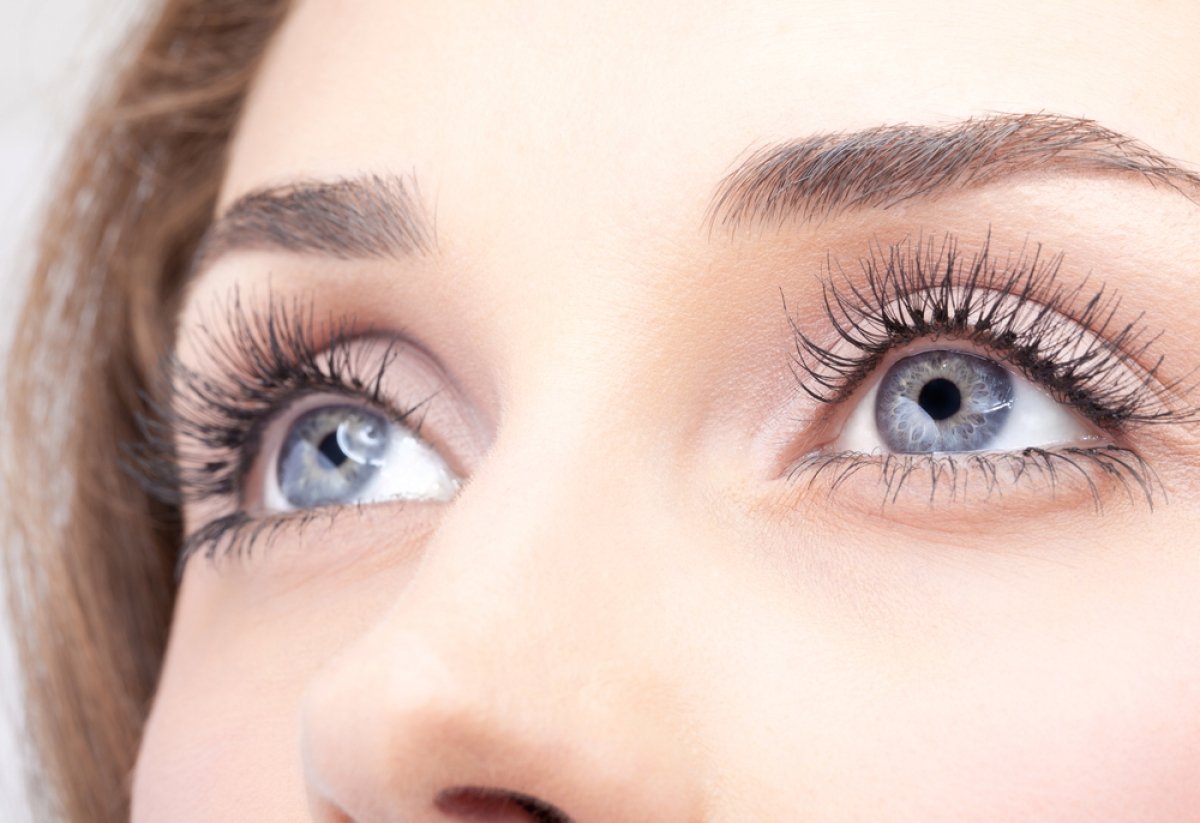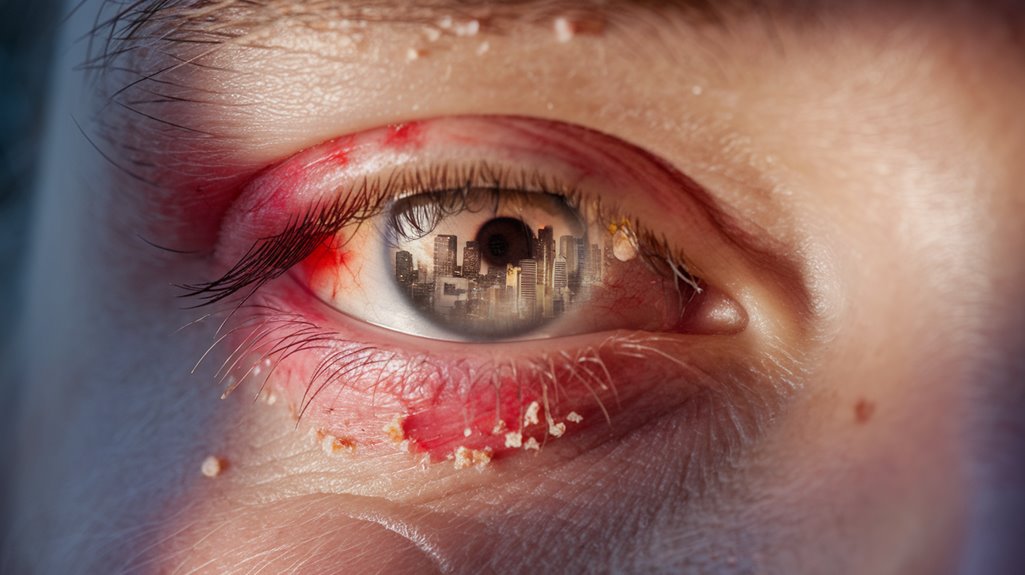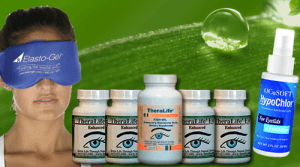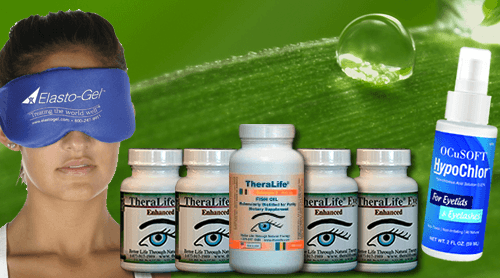Theralife.com offers a range of products that benefit customers dealing with blepharitis and related eye conditions. Their solutions focus on reducing inflammation and promoting eye health, thus breaking the cycle of stress-induced blepharitis. Theralife products work by enhancing the body’s natural healing processes and supporting immune function, which helps reduce the frequency and severity of blepharitis episodes. Additionally, the use of natural ingredients helps maintain a healthy skin barrier, preventing bacterial colonization and further irritation.
For those suffering from blepharitis, Theralife emphasizes the importance of stress management techniques like mindfulness and relaxation to complement their products. By prioritizing eyelid hygiene and seeking tailored treatment solutions, customers can optimize both their eye health and overall well-being. Explore more insights and product offerings to find a personalized approach to managing blepharitis effectively.
Best Blepharitis Treatment From TheraLife
Key Takeaways
- Stress elevates cortisol levels, suppressing the immune system and making the eyelids more prone to infections and inflammation.
- Hormonal changes from stress increase sebaceous gland activity, contributing to inflammation and worsening blepharitis symptoms.
- High stress levels correlate with more frequent and severe episodes of blepharitis due to compromised skin barrier function.
- Mindfulness practices and relaxation strategies help lower cortisol levels and improve emotional regulation, breaking the stress-blepharitis cycle.
- Good eyelid hygiene and avoiding eye makeup are essential for managing blepharitis and preventing irritation during stress.
Understanding Blepharitis and Its Symptoms
Blepharitis, an inflammatory condition affecting the eyelids, presents with a range of symptoms that can greatly impact daily life. You might experience redness, swelling, and crusty eyelids, often accompanied by itching and a gritty sensation.
Understanding the blepharitis causes is essential for effective management. It’s typically driven by bacterial infections, seborrheic dermatitis, or dysfunction of the meibomian glands.
The blepharitis diagnosis involves a thorough examination by an eye care professional, who’ll assess the eyelid margins and possibly use slit-lamp biomicroscopy to identify signs like oiliness or foamy tears.
Demodex mites can also be a contributing factor, exacerbating inflammation when present in large numbers. Identifying the underlying cause is important for treatment, which may include eyelid hygiene, antibiotics, or anti-inflammatory therapies. Proper diagnosis can greatly improve your symptoms and overall eye health.
The Impact of Stress on Physical Health
While managing blepharitis, you may notice that stress can exacerbate its symptoms, highlighting the broader impact of stress on physical health. The mind-body connection emphasizes how emotional stressors manifest physically, influencing conditions like blepharitis. Stress resilience, or your ability to cope with stress, plays a pivotal role in maintaining health. Evidence shows stress influences various bodily systems:
| System Affected | Stress Impact | Health Outcome |
|---|---|---|
| Cardiovascular | Increased heart rate | Hypertension risk |
| Immune | Suppressed immune function | Increased infection |
| Endocrine | Hormonal imbalance | Metabolic disorders |
Understanding stress’s multifaceted impact allows for more effective management strategies, fostering resilience. By enhancing stress resilience, you can mitigate stress’s physical toll, promoting overall well-being and potentially alleviating blepharitis symptoms. Additionally, incorporating omega-3 fish oil, which is rich in DHA and EPA, may support retinal health and aid in managing dry eye symptoms, offering a complementary approach to stress management.
How Stress Triggers Inflammation
When stress becomes chronic, it triggers a cascade of biological responses that lead to inflammation, a key factor in many health conditions. Your body’s stress response activates the hypothalamic-pituitary-adrenal (HPA) axis and the sympathetic nervous system. This activation releases cortisol and adrenaline, critical hormones that prepare your body for fight or flight. However, prolonged exposure to these hormones disrupts normal immune function, promoting inflammatory pathways. Cytokines, proteins that signal immune cells, become dysregulated, leading to excessive inflammation. Research shows that chronic stress can increase pro-inflammatory cytokines, such as IL-6 and TNF-alpha. These molecules not only contribute to systemic inflammation but can exacerbate existing conditions. Chronic stress can also trigger inflammatory cytokines like IL-1beta and IL-8, further contributing to dry eye disease and blepharitis. Understanding how stress induces inflammation provides insight into managing stress-related health issues effectively.
The Connection From Stress
Chronic stress doesn’t just trigger systemic inflammation; it also plays a significant role in exacerbating specific conditions like blepharitis.
When stress triggers your body’s fight-or-flight response, it elevates cortisol levels, which can suppress your immune system. This suppression may make you more susceptible to infections and inflammation, contributing to blepharitis flare ups.
Research indicates that stress can induce changes in the skin’s barrier function, increasing susceptibility to bacterial colonization on eyelid margins. Additionally, stress-induced hormonal changes can exacerbate sebaceous gland activity, further inflaming the eyelid.
A study published in a dermatology journal found that patients with high stress levels experienced more frequent and severe blepharitis episodes. Keratoconjunctivitis sicca, a common ocular manifestation in RA, can also be exacerbated by stress-induced inflammation, highlighting the interconnectedness of stress and ocular health.
Recognizing Stress-Induced Symptoms
How can you identify if your blepharitis symptoms are stress-induced? Look for specific stress indicators and blepharitis triggers.
Stress might make your symptoms more severe or frequent. You may notice increased eyelid inflammation, redness, and eye discomfort during periods of heightened stress.
Stress-induced blepharitis often coincides with other stress responses like insomnia or headaches. Research suggests that stress can trigger an inflammatory response in the body, exacerbating symptoms.
Keep track of when your symptoms flare up; if they align with stressful events or periods, stress is likely a contributing factor. Documenting these patterns can help differentiate stress-induced symptoms from other causes.
Good hygiene practices, such as regular eyelid washing, can also help manage stress-induced blepharitis by minimizing bacterial buildup and reducing irritation.
Effective Stress Management Techniques
Managing stress effectively can considerably alleviate blepharitis symptoms and improve overall eye health. Incorporating mindfulness practices into your daily routine is essential. Evidence suggests that techniques such as meditation and deep-breathing exercises enhance your body’s relaxation response. This activation reduces stress-related inflammation, which often exacerbates blepharitis. Engaging in relaxation strategies like progressive muscle relaxation or guided imagery can further aid in reducing stress levels. These methods systematically relax your muscles, which in turn lowers cortisol levels—a hormone linked to stress. Studies have shown that consistent application of these techniques can enhance your emotional regulation and decrease stress-induced flare-ups of blepharitis. Additionally, maintaining good eyelid hygiene is crucial for managing symptoms and preventing complications.
Lifestyle Changes to Alleviate Blepharitis
When addressing blepharitis, it’s crucial to adopt lifestyle changes that target its root causes and symptoms. Implementing dietary adjustments and improving sleep hygiene can greatly alleviate this condition. Here’s a detailed breakdown:
- Dietary Adjustments: Incorporate omega-3 fatty acids found in fish oil supplements. Evidence suggests these can reduce inflammation and improve eyelid gland function.
- Consistent Sleep Hygiene: Establish a regular sleep schedule. High-quality sleep can lower stress levels, which, in turn, may reduce blepharitis flare-ups.
- Eyelid Hygiene: Regularly clean your eyelids with a mild cleanser. This removes debris and bacteria contributing to inflammation.
- Stress Management: Engage in relaxation techniques like yoga or meditation. Reducing stress can positively impact your overall eye health.
- Warm compresses can be an effective way to ease inflammation and remove crust from the eyelids, providing relief from blepharitis symptoms.
These targeted changes can help break the cycle of stress exacerbating blepharitis.
Best Blepharitis Treatment From TheraLife
Seeking Professional Help for Stress and Blepharitis
When managing blepharitis exacerbated by stress, it’s essential to consult eye care professionals who can provide targeted treatment plans. These specialists often recommend stress management techniques, such as cognitive-behavioral therapy or mindfulness-based stress reduction, which have been shown to alleviate symptoms. Additionally, those suffering from rheumatoid arthritis may experience dry eyes and mouth as common symptoms, which can be managed by consulting with healthcare providers for appropriate treatments.
Consulting Eye Care Professionals
While dealing with the discomfort, consulting an eye care professional is essential for effective management, especially when stress exacerbates the condition.
A thorough eye examination can uncover underlying issues contributing to iy, ensuring you receive appropriate treatment options. Eye care professionals are equipped to tailor strategies specific to your condition, potentially alleviating symptoms and reducing stress impacts. It is crucial to avoid eye makeup during active phase to prevent irritation and facilitate recovery.
Consider these steps when consulting an eye care professional:
- Detailed Eye Examination: Identifies any underlying ocular issues or infections.
- Customized Treatment Options: Includes prescription medications, eyelid hygiene practices, or therapeutic interventions.
- Stress-Related Consultation: Discuss how stress influences your symptoms and explore mitigation strategies.
- Follow-up Appointments: Monitor progress and adjust treatment plans as necessary.
Stress Management Techniques
Addressing stress is essential in managing it effectively, as stress can significantly exacerbate symptoms. You should consider incorporating stress management techniques to break this cycle.
Mindfulness meditation can reduce stress by enhancing your awareness of the present moment, which may help alleviate its symptoms. Studies show that regular practice of mindfulness can decrease inflammatory responses, a key factor in blepharitis.
Along with meditation, breathing exercises are vital. They can lower cortisol levels, a stress hormone that can worsen ocular conditions. Techniques such as diaphragmatic breathing activate the parasympathetic nervous system, promoting relaxation and potentially reducing flare-ups.
If stress persists, seeking professional help from a therapist or counselor can offer personalized strategies to manage stress, bolstering your overall treatment plan. Additionally, managing autoimmune disorders through diet and lifestyle changes can support overall eye health and potentially reduce stress-related ocular symptoms.
Best Blepharitis Treatment From TheraLife
Frequently Asked Questions
Can Diet Affect the Severity of Blepharitis Symptoms?
Diet can indeed affect the severity of symptoms. By incorporating dietary changes, you can reduce inflammation.
Focus on omega-3 fatty acids, found in fish or flaxseeds, which are known to improve eyelid health. Nutritional supplements such as fish oil can be beneficial.
Evidence suggests that these nutrients modulate inflammatory responses in the eyes. Guarantee a balanced intake of vitamins A, C, and E to further support ocular health and alleviate symptoms.
Are There Any Herbal Remedies for Managing Blepharitis?
Imagine unraveling the secrets of herbal infusions. You’d be surprised by the efficacy of natural treatments.
Chamomile and calendula, known for their anti-inflammatory properties, might soothe those stubborn eyelid irritations. Research suggests that green tea compresses could reduce eyelid swelling.
Yet, it’s crucial to consult healthcare professionals before trying these remedies, ensuring they align with your specific condition. Don’t overlook the potential of nature’s pharmacy!
How Does Sleep Quality Influence Blepharitis?
Your sleep quality directly impacts by affecting inflammation control and tear production.
Poor sleep hygiene can lead to increased stress, exacerbating symptoms. By maintaining consistent sleep schedules and optimizing your sleep environment, you support overall eye health.
Research shows that effective stress management techniques, like meditation, can improve sleep quality, thereby reducing flare-ups.
Ensuring good sleep hygiene is essential for managing symptoms and breaking the stress-blepharitis cycle.
Can Certain Medications Exacerbate Blepharitis?
Imagine your eyes as a delicate ecosystem. Certain medication types, like antihistamines and isotretinoin, can act like invasive species, exacerbating blepharitis by disrupting this balance.
Their side effects include reduced tear production, leading to dry, irritated eyes. Studies show these medications can worsen symptoms.
If you’re on such meds, speak with your healthcare provider about alternatives. It’s essential to maintain the harmony in your eye’s ecosystem to manage it effectively.
What Role Does Screen Time Play in Blepharitis Flare-Ups?
Screen time can greatly impact blepharitis flare-ups.
Digital eye strain, caused by prolonged exposure to screens, exacerbates symptoms. Excessive screen time leads to reduced blinking, worsening tear film instability. Additionally, high screen brightness can increase eye fatigue, further irritating the eyelids.
Studies show that limiting screen time, adjusting brightness, and taking regular breaks can alleviate these effects. Implementing the 20-20-20 rule is essential: every 20 minutes, look at something 20 feet away for 20 seconds.
Best Blepharitis Treatment From TheraLife
Conclusion
Imagine your eyes as a serene sea. When stress makes its way in, it stirs the waters, intensifying blepharitis with inflammation‘s harsh waves. By incorporating TheraLife’s products into your routine—designed to alleviate dry eyes and blepharitis—you can soothe these restless waters. TheraLife offers comprehensive solutions that not only address blepharitis but also contribute to overall eye health. Their natural, clinically-tested products are formulated to reduce inflammation and promote tear production, providing relief and comfort. Don’t hesitate to consult with healthcare professionals; they can guide you on using TheraLife products effectively, helping you navigate towards clearer, calmer waters and breaking the cycle of stress and eye discomfort.





